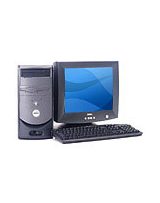Audette Internet Solutions provides
honest web hosting services through
its sister company
eightdollarwebhosting.com.
It's the company name, web
address and the monthly price
for reliable web hosting with
email. |
They are known as bot software.
These remote attack
tools can seek out and
place themselves on
vulnerable computers,
then run silently in the
background, letting an
attacker send commands
to the system while its
owner works away,
oblivious. The latest
versions of the software
created by the security
underground let
attackers control
compromised computers
through chat servers and
peer-to-peer networks,
command the software to
attack other computers
and steal information
from infected systems.
Besides all the bad
things this software
does, it also eats up
your computer's
resources making it slow
down and act "tired."
|
Here are a number of
ways to ensure your
computer is not a
victim:
1. Patch and
update
Windows,
Internet
Explorer,
and other
applications. Unpatched operating
systems are one of the leading causes of
rampant PC infection on the Internet. Use
the Windows
Update feature to close all vulnerabilities.
2. Run a firewall application, such as the
improved firewall in Windows XP SP2, or even
better,
use the free versions of ZoneLabs ZoneAlarm
or Sygate Personal Firewall.
Firewalls restrict access to your PC's
networking resources and allow you to keep
tabs on which
programs access the Internet. If an oddly
named or unknown program suddenly wants
permission to
talk to the network, you may be seeing bot
code in action. Cable and DSL subscribers
should also
consider a hardware firewall--such as those
included in virtually all consumer wireless
network
routers--to provide heightened security. |
|
3. Close port 6667, if you can. Most bot and
zombie networks communicate over Internet
Relay
Chat, a multiuser chat system that lets
computer users trade real-time messages with
each other
over the Internet. Bot and zombie network
code often uses IRC to send commands to
infected PCs.
By closing port 6667, you close the default
door used by many bot networks to control
PCs.
Hardware firewalls typically let you close
specific ports from browser-based controls;
however,
some software firewalls lack this
capability.
4. Install, use, and update an antivirus
program. Many PCs inadvertently join bot
networks by
running virus code in an e-mail attachment,
downloaded file, or even a compromised JPEG
image.
Commercial antivirus applications like
Norton AntiVirus and McAfee VirusScan can
detect and
nullify infected files and attachments
before they get a toehold on your PC. To
ensure the
antivirus program is effective, you should
check for new virus signatures at least
daily -- otherwise,
a newly minted virus might slip past your
defenses.
5. Perform frequent spyware sweeps. Spyware
and adware software can sit quietly in the
background and track your movements,
redirect your Web browser, and even log
keystrokes or
harvest financial data from your PC's hard
drive. Use Lavasoft Ad-Aware or Spybot
Search &
Destroy to find and knock out known spyware
and adware components on your PC.
6. Turn off administrator privileges. For
day-to-day work, log onto your PC using a
limited
user account rather than an administrator
account. This can prevent applications from
silently
installing under your current log-on, since
the limited account category doesn't allow
system
changes or software installations. When you
need to install an application, you can log
in as
an administrator, complete the installation,
and then sign back in with your user-level
account.
7. Abandon Internet Explorer. Sorry to say,
but the world's most popular Web browser is
also
the most popular with virus writers.
Installing and running an alternative
browser--such as Mozilla,
Firefox, or Opera will attract fewer
exploits and will therefore reduce your
exposure to infection.
8. Turn your PC off at night. As bot
software writers get more sophisticated,
they get better
at blending in. By performing spam
distribution and software updates at night,
when PC users
are away, bot networks can reduce the chance
of detection by users. Turn off unused PCs
to
reduce the window of opportunity for your
system to be contacted by bot network
servers or to
transmit spam. You also reduce opportunities
for a port scan or other exploit to breach
your
PC's defenses.
|



